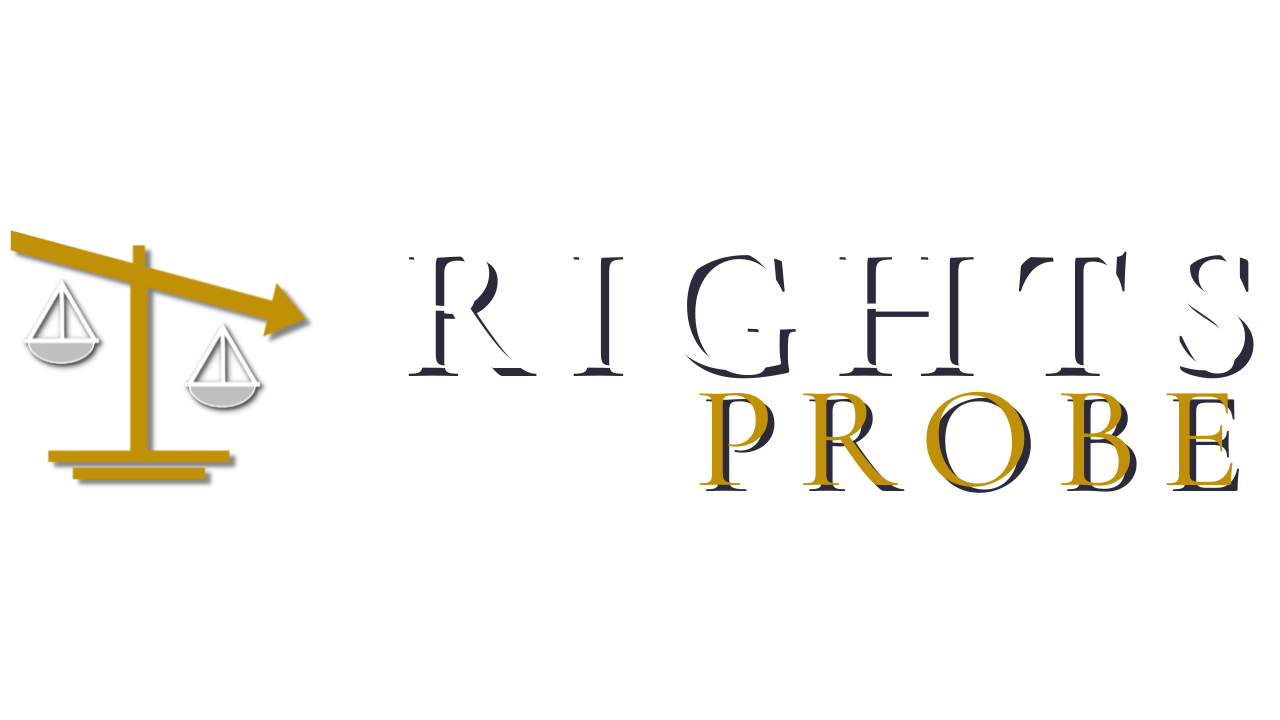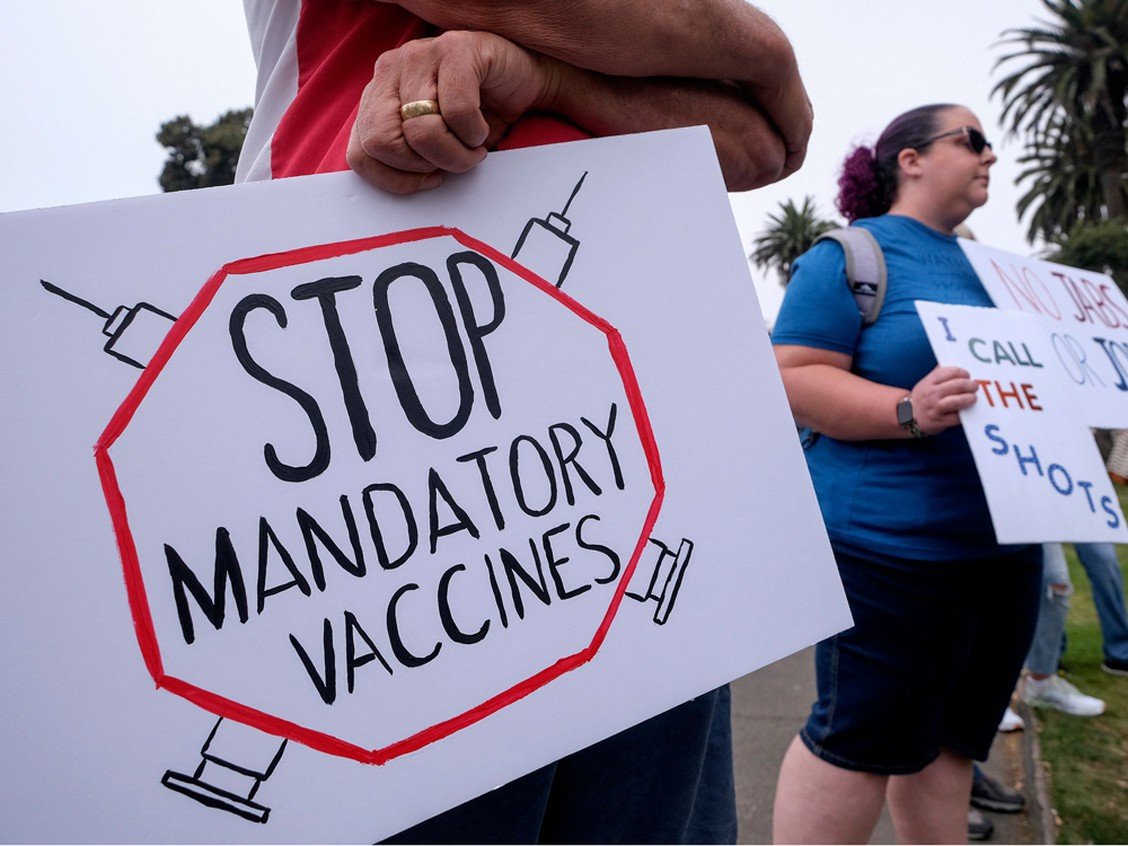Mandatory vaccines would at least prove whether the Charter is worth anything at all
Vaccine mandates are creating divides, separating people who can fully participate in society, and spilling over into the office. PHOTO BY RINGO CHIU/AFP VIA GETTY IMAGES.
By Bruce Pardy for the National Post
On Friday, federal Health Minister Jean-Yves Duclos said that provinces are likely to introduce mandatory vaccination policies in coming months. Alberta Premier Jason Kenney and Saskatchewan Premier Scott Moe immediately opted out , although one constant throughout COVID has been governments backtracking on their resolutions. Quebec has weighed in by promising a “significant” health tax for the unvaccinated. Other provinces may perceive that mandatory vaccines would be a blunder and a bridge too far.
But wait, don’t we already have mandatory vaccines? In many places around the country, proof of vaccination is required to sit in restaurants, attend sporting events, and fly on planes. In some workplaces, vaccination is now a condition of employment. Get jabbed or lose your education, social life, physical activity, religious community, and maybe even medical treatments. Surely these are “mandatory vaccinations”?
According to governments, they are not. Vaccine passports and mandates merely present a choice that carries consequences, they say. You may choose to get vaccinated or not. If you don’t, you may effectively lose your whole life, which may be harsh, but it is still a choice. Therefore, the argument goes, it is not “mandatory” and does not invoke the Charter.
Let’s back up one step. Bodily autonomy and control over medical treatments is one of the most important rights in our system of law. The Supreme Court of Canada has on numerous occasions acknowledged the “tenacious relevance in our legal system of the principle that competent individuals are — and should be — free to make decisions about their bodily integrity.” Each person has a right to make their own medical decisions, a right protected by the guarantee to liberty and security of the person in Section 7 of the Charter. This right exists notwithstanding “that serious risks or consequences, including death, may flow from the patient’s decision.” All competent adults may refuse consent to medical treatment, even if that treatment would save their life.
However, if they retain the ability to say yes or no to the treatment, the right to security of the person may not be in play. If getting on the plane requires proof of being vaccinated and they go to the clinic to get one, the fact that they don’t really want one does not vitiate the consent they gave to the nurse. They could have said no and not travelled. The Charter does not give the right to be free from difficult choices. Moreover, it does not grant the right to fly on planes, go to restaurants, or have a job. Neither passports nor workplace mandates hold people down and jab them against their will or throw them in prison for refusing — and therefore courts may conclude that Charter rights to liberty or security of the person are not engaged. The closer the government comes to making life actually impossible, like banning people from grocery stores, the better the chances that the Charter will have found to have been breached.
But truly mandatory vaccination is different. Unlike vaccine passports and workplace mandates, Duclos means actually mandatory — as in, take the shot or pay a fine, or go to prison when you refuse. Mandatory vaccination crosses the line into actual coercion. The police may not come to the door with their weapons drawn, but you will have no choice but to comply or face legal penalties imposed with state force.
So far, governments have been careful with their COVID policies, attempting to avoid Charter problems by pushing indirectly what they could not force directly. Mandatory vaccines would abandon that strategy, explicitly doing what governments have been pretending not to do at all. A Charter challenge to mandatory vaccinations would be one of the best to come along to this point in the COVID era.
Of course, even if a Charter breach was found, there is still the “reasonable limits” exception in Section 1. As Rex Murphy aptly put it in these pages, COVID-19 is the greatest notwithstanding clause the Constitution will ever see. But at least governments might finally be put to the onus of proving, with evidence in open court, that mandatory vaccination is proportional to the threat and the only practical option. If mandatory vaccinations are not unconstitutional, then on COVID, the Charter is truly useless.
Whatever the eventual result in the courts, mandatory jabs are unlikely to boost uptake very much, and indeed might have the reverse effect. Having already endured cancellation and social disapprobation, the still unvaccinated will be loathe to go along. At this late stage, not being vaccinated will have been a deliberate choice for most. Contrary to media portrayals, the unvaccinated aren’t stupid. They are among the most well-informed citizens around, many having studied the medical data and scientific papers, and come to their own conclusions based upon the international evidence as it appears to exist. Isn’t that the essence of a free country?
As for the already vaccinated, making boosters mandatory would abandon any pretence of persuasion. As more people begin to wonder if they will be expected to take boosters indefinitely, an iron fist might make them reconsider the whole regime. The harder you squeeze, the more sand slips through your fingers. Forcing needles into people’s arms and imprisoning political dissidents is hardly the way to be on the right side of history. If governments are determined to go down this path, we can at least find out if the Charter is worth the paper it is printed on.
Bruce Pardy, reprinted from the National Post.
Bruce Pardy is executive director of Rights Probe and a professor of law at Queen’s University.

